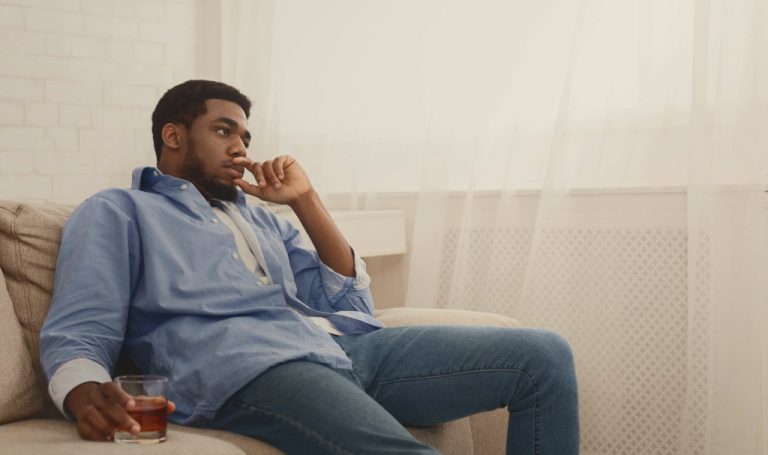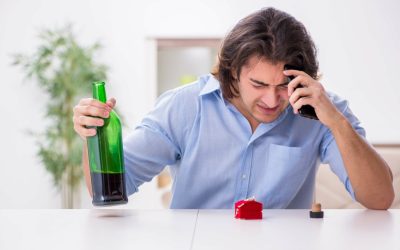Always consult a healthcare provider before mixing any medications with alcohol. Some people in recovery may try to start drinking again to improve their sleep. However, the alcohol will continue to damage their sleep cycles, and the problem will not get better. In an attempt to fall asleep, some people have a drink before bed. One study shows that this is the reason about 10%of people drink alcohol. Because alcohol can have a depressive effect on the brain, drinking may help some people fall asleep faster.

Why Can’t I Sleep Without Alcohol?
- It’s a trap that can be hard to recognize when you’re in it.
- This is why you might find yourself waking up frequently in the second half of the night.
- This leads to increased consumption, further complicating sleep patterns.
Sleep apnea is a medical condition that causes breathing pauses or shallow breaths while sleeping. It can be caused by a variety of things, including alcohol. Drinking alcohol relaxes the muscles in your throat, which can cause them to collapse and block your airway. If you think you may have sleep apnea, talk to your doctor about it.
- Invest in a good quality mattress and pillows, ensure the room is cool, dark, and quiet, and consider using blackout curtains or eye masks.
- Sleep is very important to your wellbeing and a lack of sleep will affect your concentration, mood and physical strength.
- REM sleep is important for emotional regulation, memory consolidation, and brain health.
Be Mindful of How Much You Drink

Studies have shown exercise during the day helps regulate mood and reduce worrying thoughts which is especially helpful when trying to get a good night’s rest. While alcohol does have a reputation for making people sleepy, it can actually interfere with proper rest. Alcohol can disrupt deep sleep, causing more light and disturbed sleep, and often leads to feelings of fatigue the next day even after https://www.justrearends.com/why-does-alcohol-cause-easy-bruising/ plenty of rest. While drinking alcohol before bedtime may help you feel relaxed and sleepy, enjoying a nightcap puts you at risk of experiencing repeated wakings and low-quality sleep later in the night. Dealing with sleepless nights is hard, but there are ways to cope.
Can stress cause sleep apnea?
The truth is, while alcohol might seem like a sleep aid, it’s one of the biggest disruptors of high-quality, restorative rest. You get a small advance upfront (falling asleep quickly), but you pay for it with high interest later in the night in the form of Oxford House fragmented, unsatisfying sleep. This disruption is why you might feel groggy, irritable, and unfocused the next day, even if you were in bed for a full eight hours. You didn’t get the deep, healing rest your brain and body need.

Some people feel like they can’t sleep without having a hot bath, others rely on soothing teas. Several factors can influence how quickly and to what extent sleep improves after giving up alcohol. Shaking this addiction and learning to sleep without alcohol can be difficult. The idea of attempting to sleep without alcohol can cause anxiety, which can lead to more drinking, perpetuating the cycle of alcohol abuse.
If an individual finds it impossible to stop using alcohol for sleep despite attempts, or experiences significant distress related to its use, intervention may be needed. Persistent sleep problems coupled with alcohol dependence concerns are clear signs that professional guidance is beneficial. Consulting a healthcare professional, such as a doctor or sleep specialist, can provide an assessment and personalized plan. Addiction counselors or mental health professionals can also offer support for addressing alcohol dependence and underlying mental health issues contributing to sleep difficulties.
Improved Energy and Focus During the Day
This is not just about battling those long wakeful nights; it’s about gaining control of your body and overall wellness. Unpack your darkest circles under your eyes, and let’s walk through the sleepless town once ruled by alcohol. Navigate with valuable insights and find solace in proven solutions. Creating a relaxing sleep environment can help you fall asleep more easily. Make sure your bedroom is dark and quiet, and keep the temperature cool. It’s also important to limit or avoid exposure to electronics and screens before bed, as the blue light can interfere with your sleep.
Your evening food choices create the foundation for restful nights, no alcohol needed. Sleep-friendly beverages offer a better path to restful nights than alcohol. Let’s explore how these natural alternatives support your body’s sleep cycle without disrupting REM sleep or causing midnight wakings. If drinking sleep without alcohol was part of your previous bedtime ritual, it’s time to come up with a new one.
